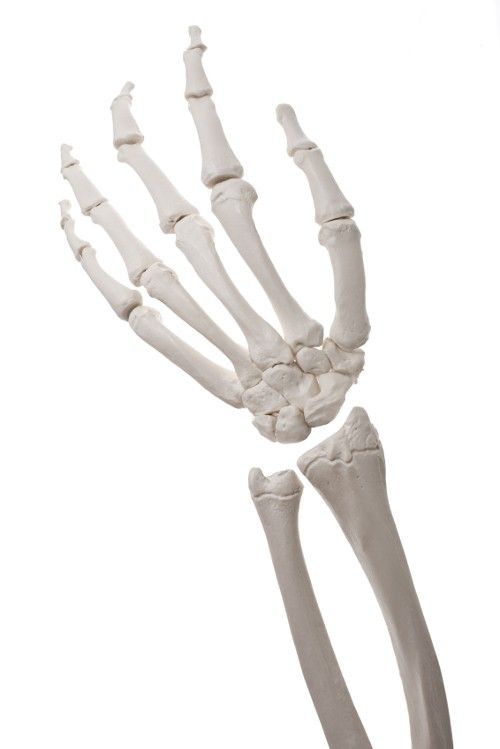Algae Multi-Mineral Ingredient More Effective than Calcium Carbonate in Slowing Bone Loss in Animal Model of Osteoporosis
In the animal study, researchers sought to establish the extent to which Aquamin, a calcium-rich, algae-based multi-mineral complex ingredient, might outperform other calcium carbonate–based calcium supplements commonly used to help prevent osteopenia and osteoporosis.
Photo © iStockphoto.com/archives

A new animal study,1 published in Calcified Tissue International, found that Marigot Ltd.’s (Cork, Ireland) calcium-rich Aquamin ingredient was more effective than calcium carbonate in slowing the onset of bone loss. Aquamin is a marine-based, algae-derived multi-mineral complex ingredient high in calcium that is said to support bone structure, composition, and strength. In this study, researchers sought to establish the extent to which Aquamin might outperform other calcium carbonate–based calcium ingredients commonly used to help prevent osteopenia and osteoporosis.
The Aquamin ingredient is derived from the red algae species Lithothamnion and is said to contain bioavailable calcium, magnesium, as well as 72 trace minerals, including, zinc, selenium, and other minerals that the study authors say have been shown to support bone health. Its primary strength, they say, is that it is plant-based, not extracted from limestone or rock like calcium carbonate is. This plant cell structure is said to give the ingredient “significant benefits in its chemical behavior and its absorption.” In addition, the researchers write, recent trials have also shown positive effects of Aquamin on bone health.
This 20-week study was conducted using an ovariectomized rat model of osteoporosis. Eighty-eight female rats were randomly assigned to one of four groups: 1) non-ovariectomy control; 2) ovariectomy plus calcium carbonate supplementation; 3) ovariectomy plus Aquamin; or 4) ovariectomy plus Aquamin delay where treatment began at eight weeks post-ovariectomy. Aquamin treatment began at week 0 for group 3, while group 4 treatment began at week 8. Two diets were used in this study: a regular murine chow, which the researchers say provides the recommended daily allowance of calcium in calcium carbonate form, and a specially formulated murine chow supplemented with Aquamin. In the latter diet, researchers replaced the calcium carbonate with Aquamin at a concentration such that the calcium levels were equal in both diets.
Researchers removed the animals’ right tibias to assess bone characteristics. They used microCT scanning followed by Scanco software that measured bone structural parameters. Specifically, the researchers were looking for changes in bone volume fraction; secondary study endpoints were changes in trabecular thickness, trabecular separation, and hydroxyapatite content.
The micrographs demonstrated that there was significant loss of trabecular bone structure following 20 weeks of ovariectomy; however, the trabecular bone structure was preserved in the group given Aquamin at week 0. Results for the Aquamin delay group, meanwhile, fell between those of the ovariectomy and Aquamin groups with regard to bone structure.
By comparison, per the study: “Quantitative analysis shows that as early as week 2, the [ovariectomy plus calcium carbonate] group displayed large changes in structural parameters relative to the healthy control, indicating the development of osteopenia.” In addition, the study authors recorded losses in bone volume fraction and other bone health parameters in this group. There were no significant changes between the groups with regard to trabecular thickness, however.
The study authors concluded that Aquamin treatment has potential to help slow down bone loss in an animal model of osteoporosis, though they note that they are unsure of the exact mechanism of action of Aquamin. They also suggest that “an assessment of the combined influence of Aquamin and vitamin D would be merited.”
David O’Leary, commercial manager, Marigot Ltd., commented on the study results in a press release: “This new research highlighting the beneficial effects Aquamin has on bone health is very compelling and indicative of ways to address bone deterioration. Studies such as these continue to support Aquamin’s proven efficacy as a mineral ingredient for dietary supplements not only to help maintain bone health, but digestive and joint health, as well.”
Stauber Performance Ingredients Inc. (Fullerton, CA) is the exclusive distributor for Aquamin in North America.
References:
- Brennan O et al., “A natural, calcium-rich marine multi-mineral complex preserves bone structure, composition and strength in an ovariectomised rat model of osteoporosis.” Calcified Tissue International. Published online June 24, 2017.







